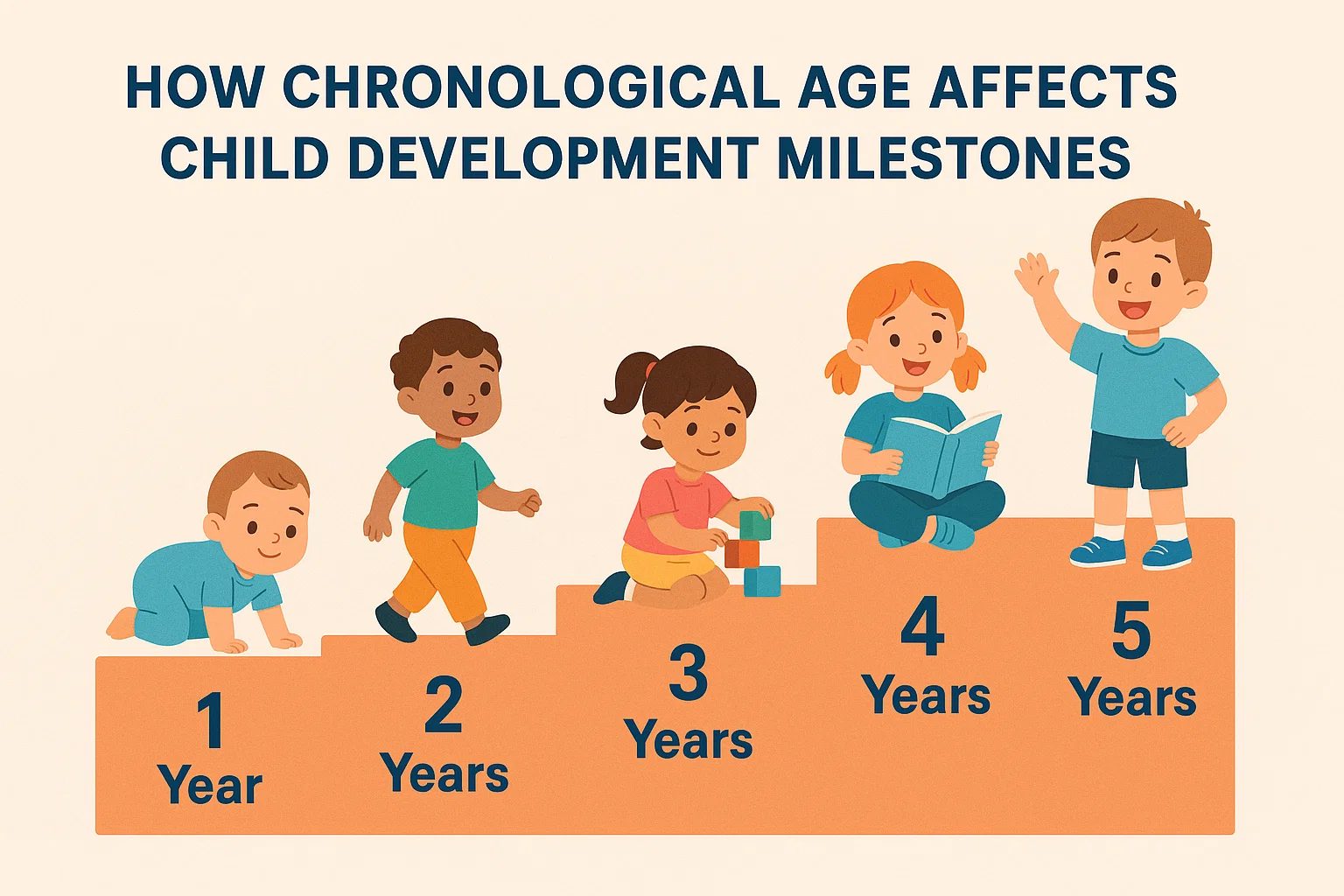How Chronological Age Affects Child Development Milestones?

A chronological age is the number of years and months since a child was born. It helps teachers, doctors, and parents understand the milestones a child should achieve at different stages of development, including skills such as language, movement, thinking, eating, studying, and social interaction. In this blog post, we’ll explore how chronological age affects child development milestones.
Why Age Matters in Child Development?
From birth to youthfulness, a child goes through various stages of development, including skills such as walking, playing, talking, thinking, and acting. Therefore, chronological age is used by health professionals and educators as a benchmark to track children’s progress and physical and mental health. For example:
- At 6 Months: By 6 months, babies often start crawling, sit with support, roll over, react to sounds, respond to their names, and show interest in people.
- At 1 Year: In 12 months, most babies will say basic words, such as “Mom” or “Dad,” start standing or walking, begin gesturing like waving, and show curiosity towards objects.
- At 2 Years: They can walk or run independently without any support, start putting words together, and show emotions.
- At 4 Years: Kids can freely play, learn deeply, obey some rules, speak full sentences, and speak clearly.
Why is The Chronological Age So Important?
chron age calculator helps identify issues if a child may not be able to achieve expected milestones. Early analysis lets parents understand their child’s motor skills and speech development. For example, if a 2-year-old baby is not speaking, he might have hearing or speech issues. Earlier support helps parents achieve better outcomes. It also helps:
- Enroll them in the school’s early learning program.
- Find out the issue and get help if needed.
- Ensure that the babies are learning and growing as expected.
Different Children’s Growth Duration
Not every child achieves milestones at the same time or age. Some talk early, some talk late. Some walk early, some walk late. It is a normal thing, depending on their environment, area, or coaching. However, chronological age helps us determine when and how to analyze more closely.
Summary
Chronological age lets people track their child’s milestones or growth using a simple tool. It helps teachers, parents, and doctors to know when to take action if something looks abnormal. In comparison, each baby achieves his or her milestones at their own pace.
